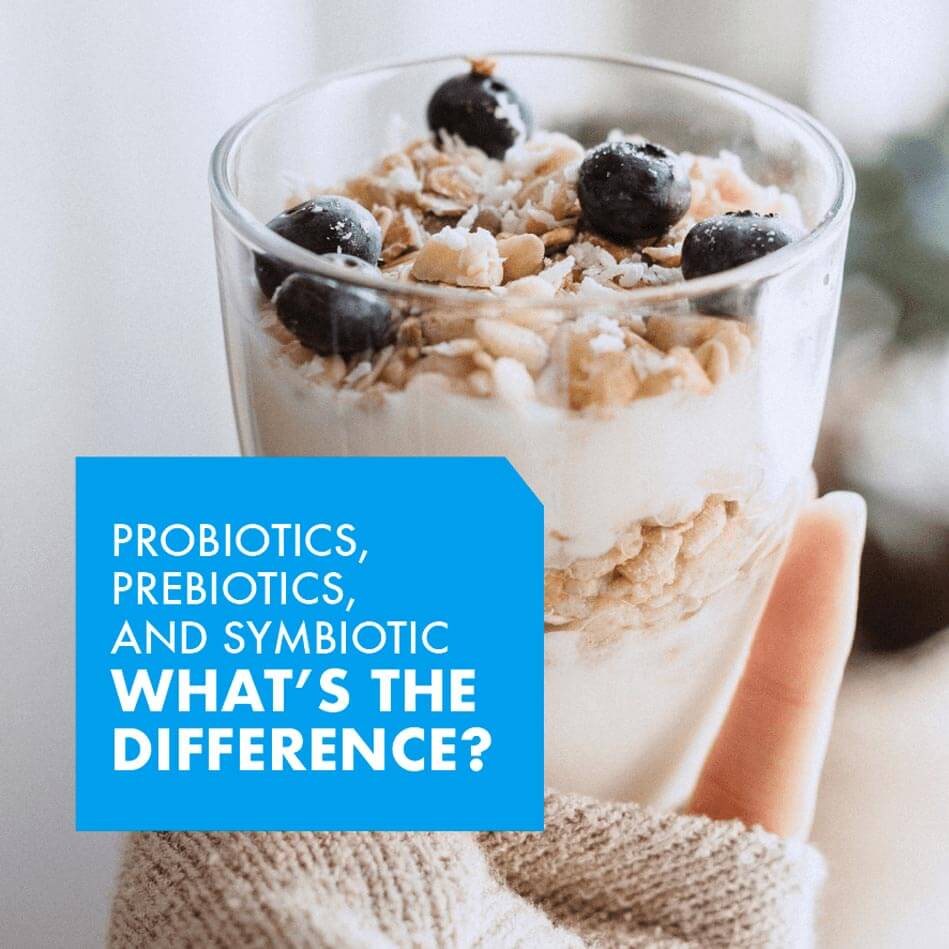
Probiotics, Prebiotics, and Symbiotic: What’s the Difference?
Do you like Yoghurt? Nowadays, yoghurt have different types of flavour and packaging. Consuming yoghurt is indeed associated with many health benefits. In a glass yoghurt there are many ingredients such as probiotics, prebiotics, symbiotic and different kinds of plant extracts to produce functional yogurt comprising extra beneficial properties.
But do you know the difference of probiotics, prebiotics, symbiotic? Let’s find out in this article!
- Probiotics
Probiotics are a combination of live beneficial bacteria and/or yeasts that naturally live in your body. Probiotics are beneficial to our health. They can provide numerous health benefits. We consume probiotics either through food or supplements.
The main job of probiotics, or good bacteria, is to maintain a healthy balance in your body. Think of it as keeping your body in neutral. When you are sick, bad bacteria enters your body and increases in number.
- Prebiotics
Prebiotics are compounds in food that induce the growth or activity of beneficial microorganisms. More directly, this means prebiotics are non-digestible carbohydrates found in certain foods (such as onion, garlic, asparagus, green banana and chicory root), that have a beneficial part in shaping our gut microbiota along with probiotics. They may have several beneficial effects on the host in terms of improving digestion
- Symbiotic
Symbiotic refer to food ingredients or dietary supplements combining probiotics and prebiotics. Symbiotics are now being considered important tools to help maintaining humans and animals in good health, for prevention of disease, and/or as alternatives for reducing the risk associated with diseases.
Interested in knowing more about interesting ingredients in food?
Let’s join SGU’s Food Technology study program. You will learn about every aspect of the food processing industry, from the knowledge about food material characteristics to food packaging and storage technology. SGU Food Technology provides the opportunity to join a fast-growing food industry. A unique combination of theoretical knowledge and hands-on experiences gained during two internships, in Indonesia and Germany, provide our graduates with appropriate skills in science and technology, together with creative and innovative flair.
SGU Food Technology offers 2 curriculums:
- Single Degree
- Double Degree at Albstadt-Sigmaringen University or Fachhochschule Südwestfalen
Download our curriculum by clicking the button at the end of this article.
About SGU
SWISS GERMAN UNIVERSITY (SGU) is an international university in Indonesia, was established in 2000 as a joint effort between Indonesia, Germany, Switzerland, and Austria. We are the pioneer in offering international curricula in Indonesia. Qualified students can graduate with a Double Degree from Indonesia and Germany, which SGU provides in cooperation with partner universities; surely a valuable tool for your future careers. Ever since its establishment, SGU has been dedicated to delivering quality education in line with international standards and aims to develop skilled professionals who meet the demands of the industry. In order to achieve its objectives, SGU offers quality-oriented learning through 12 Bachelor’s Degree Programs and 4 Master’s Degree Programs ranging from Engineering, Information Technology, and Business to Life Sciences and Social Sciences. Furthermore, with small class sizes, and with English as the medium of instruction, you can look forward to pursuing your tertiary education and degree with full confidence.
Curriculum Single Degree Curriculum Double Degree Back
